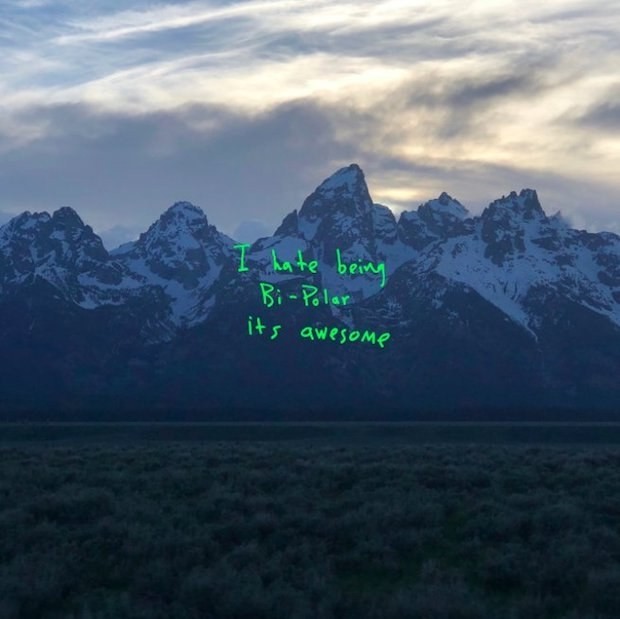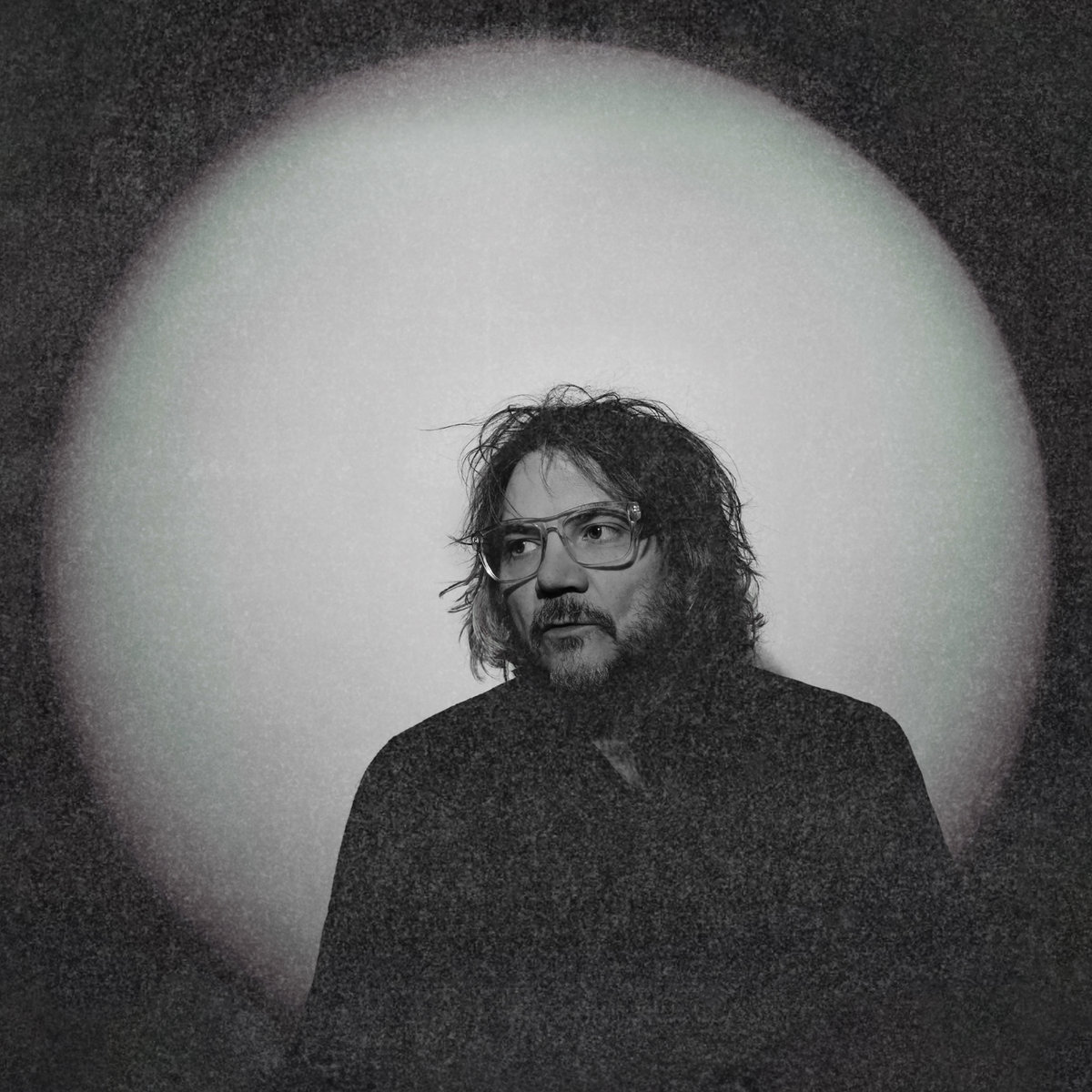There are moments of true, transporting beauty on Ye, the new Kanye West album. There's the humid bloom of the bass on "Yikes," the way the drunken drums and MPC hiccups stagger upwind through that distorted drone. There's Uncle Charlie Wilson's voice surging skyward on "No Mistakes," soaring above those pianos like a phoenix in flight. There's the warm, comforting organ tones on "Violent Crimes," the familiar hum that encircles West's paranoiac sitcom-dad future-fantasies like an old, understanding friend. There's the way Valee's falsetto half-rap trips over the minimal "All Mine" beat. There's the part where Kanye says, "I love your titties cuz they prove I can focus on two things at once," which is the funniest Kanye West punchline in at least a few years.
But are those moments enough? Ye arrives after a very rough two-year period for Kanye West. To even recount the things he's done since the release of The Life Of Pablo is to risk exhaustion -- the raucous floating-stage tour, the angry-breakdown rants about old friends and mentors, the hospitalization, the Trump photo-op, the long stretch of relative seclusion. There's also the past month or so -- the Twitter reactivation, the half-cocked embrace of the disingenuous right-wing thinkosphere, the "slavery was a choice" disaster, the general directionless thrashing-around talk about being a free thinker. This period has certainly affected West, and those close to him, a whole lot more than it has those of us who love his music. But even as he's put himself through some shit, he's put us through some, too.
To some extent, it's always been like this. Loving Kanye West has always involved some level of apology, of rationalization, of equivocation. West arrived in the public eye a fully formed egomaniac, one who got away with pointing out how transformative he was because he really was that transformative. And he's always had a way of translating his lowest, darkest moments into compelling, world-altering art.
The mad, frustrating scramble to be taken seriously as a rapper led to The College Dropout, the album that reshaped the ways that blockbuster rap personas could look and blockbuster rap albums could sound. The death of his mother and the painful dissolution of his engagement led to 808s And Heartbreak, the album that reshaped rap's personas and sounds all over again. The deep stresses of public marriage and fatherhood led to the furious punk negation of Yeezus. Even on something like West's guest verse on Young Jeezy's "Put On," West found ways to channel all of his darkness and anger and wounded pride into something that resonated in ways larger than his own personal travails.
Has he done those things again with Ye? He's certainly tried. Ye is, transparently and obviously, an album about mental illness. West wants us to know this; he wants no confusion. With the cover art -- a scrawled-over photo that Kim Kardashian claims he took on the way to his Wyoming listening party -- West calls himself out as bipolar. With the intro track, he confesses to both homicidal fantasies and suicidal ideation, treating the latter almost as an aside: "I think about killing myself, and I love myself way more than I love you, so..." He sings and raps about depression, about prescription-pill abuse, about the terror that comes with parental protectiveness, about the dizzy insanity that comes from living a very public life in 2018. He never really flexes, something he couldn't even resist doing on 808s. (He does say that being bipolar is a superpower, not a disability, but that's not flexing; it's self-affirmation.) "Sometimes, I think really bad things," West says, and that line could almost serve as the album's thesis statement.
Is that brave? Maybe. But there's also a way to read Ye as West's non-apology apology for the megalomaniacal rampage he's been on for the past few months. West never mentions Donald Trump's name on Ye -- thank fucking God -- and yet the specter of West's far-right flirtations are all over the album. "Yeezy Yeezy trillion’ OD, huh? / Turn TMZ to Smack DVD, huh?," he asks us. (I've watched a lot of Smack DVDs -- the mid-'00s New York-centric DVD mixtapes that were mostly given over to stuff like French Montana and Murda Mook talking shit about each other -- and I never once saw, like, Papoose claiming that slavery was a choice.) On "Wouldn't Leave," West describes Kim Kardashian calling him after the TMZ episode: "My wife calling, screaming, say we ‘bout to lose it all / Had to calm her down cuz she couldn’t breathe / Told her she could leave me now but she wouldn’t leave."
Elsewhere, West contemplates Russell Simmons, the accused sexual predator who co-founded the label that has released all of West's albums, and the #MeToo moment that undid him. Tellingly, West wonders how the movement might affect him, not about the people who have been traumatized by people like Simmons for decades: "Thinking what if that happened to me too / Then I’m on E! News." Final track "Violent Crimes" is a protective-father vent session, much like The Life Of Pablo quasi-closer "Wolves." But this time, West's fears are concrete, specific, and deeply basic. He's worried about his daughter ever having sex, even mentioning the terrifying-the-prom-date scene from Bad Boys 2.
"I think Prince and Mike was tryna warn me," West muses. "They know I got demons all on me." West has said that he's been addicted to opiates, the same pills that killed two of the great black-music heroes of his lifetime. He's talked about getting liposuction, even after complications from a liposuction surgery killed his mother, because he didn't want people to make fun of him. And the incomprehensible stresses of celebrity life might be the album's single greatest motif. It can't be fun to live the way Kanye West does. It destroys people. People who work for, and then achieve, the levels of stratospheric fame that West has found seem to be a uniquely miserable demographic. Their personal lives suffer. Their health suffers. And their art suffers, too. West has lasted longer than most, making a solid decade and a half of rap albums that range from very good to out-and-out brilliant. The stretch of music from College Dropout to The Life Of Pablo is probably the single greatest album-to-album run in rap history. It couldn't last forever.
It hasn't lasted. Ye is not going to be anyone's favorite Kanye West album. West's whole idea -- producing five seven-song albums, for himself and others, in a five-week period -- is admirably ambitious. It's already led to something great in Pusha-T's Daytona, an album that uses that level of brevity and focus to find something small and sharp and brilliant. But West himself doesn't seem capable of that level of focus, at least not now. For all of its beautiful moments, Ye is the first Kanye West album that hasn't represented a quantum leap from whatever came before. He's still working in the same sonic wheelhouse that he was in on The Life Of Pablo, which itself was probably the weakest album of West's career before this one came along. The sonic palette -- gospel melodies, sparse synth-glimmers, minimal textures -- remains unchanged. He's spinning his wheels, not pushing himself.
In the few years between The Life Of Pablo and now, things have changed. West debuted that album in a messy livestreaming event that was a bit frustrating for those of us who weren't in Madison Square Garden that day. We had to spend the afternoon staring at Tidal, refreshing the glitchy stream, staring at the unmoving runway models in the ripped-up paramilitary clothes. And yet that was exciting -- hearing Chance The Rapper masterfully taking over "Ultralight Beam," hearing "Famous" dissolve into the Sister Nancy sample, watching the gleeful anarchy as Young Thug took over the aux chord. Even on his least inspired album, West could create a sense of electricity. But that's gone now. Those of us who stayed up after the first game of the NBA Finals ended last night, who did all the asinine app-downloading we had to do to watch janky footage of famous people messing around campfires, didn't hear anything that might've rewarded those efforts. We were rewarded with a shrug.
Ye is out now on G.O.O.D. Music/Def Jam. Stream it below.






